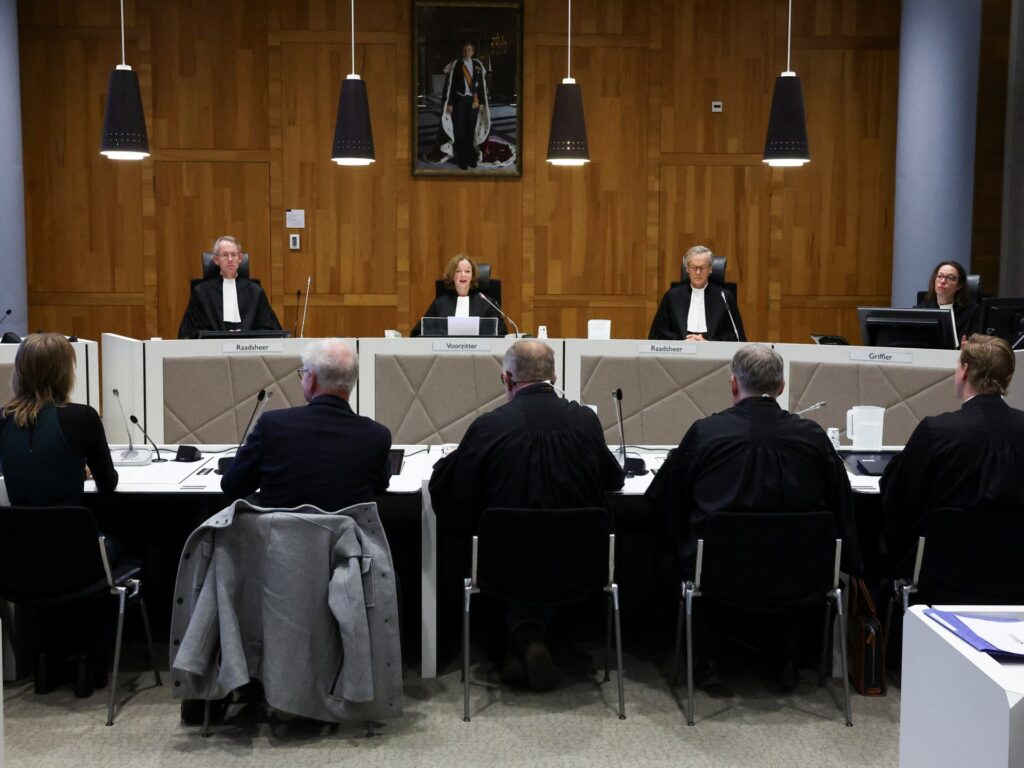
Dutch appeals court agrees Shell must act to protect climate but dismisses stipulated emissions cut.
A Dutch court has sided with Shell on its appeal against an earlier ruling that it was obligated to drastically reduce greenhouse gas emissions to help prevent climate change.
An appeals court in The Hague on Tuesday dismissed the ruling, saying the oil and gas company is on its way to meeting emission targets that it has set for itself, and that it is unclear if reducing emissions caused by its products would help the fight against climate change.
The verdict came a day after the COP29 climate summit opened. The annual United Nations event, hosted by Azerbaijan, was launched on Monday amid warnings that 2024 is on track to break temperature records.
The Hague’s district court ruled three years ago that the British-Dutch oil and gas giant should cut its absolute carbon emissions by 45 percent by 2030 compared with 2019 levels, including emissions caused by the use of its products.
The court said it agrees that Shell is required to reduce carbon emissions, but that it could not determine the extent of the cuts.
It was noted that emissions from Shell’s own production process were 31 percent below 2016 levels last year, and added that the company targets a 50 percent reduction by 2030.
Protection against global warming is a basic human right, the judge said, meaning companies such as Shell do have an obligation to reduce greenhouse gas emissions and that courts can order them to accelerate climate policies.
“Products from companies like Shell have caused the climate problem. These companies have a human rights obligation to everyone in the world to reduce their CO2 emissions,” Presiding Judge Carla Joustra said.
However, he added that setting specific targets for reductions could have an adverse effect should, for instance, such limits prevent companies from selling gas to a customer currently using coal.
The original 2021 ruling marked the first time in history that a company was found to have been legally obliged to align its policies with the Paris Climate Agreement. It set off a string of lawsuits by climate activists against other fossil fuel companies.
The 2015 international framework signed in Paris aims to decrease carbon emissions to limit the average global temperature increase to between 1.5-2 degrees Celsius (2.7-3.6 degrees Fahrenheit) to curb the potentially devastating effects of climate change.
Shell moved its headquarters to the United Kingdom in the aftermath of the ruling as The Hague district court ruling is legally binding only in the Netherlands.
The company had argued that the ruling would damage its business, without offering any advantages to the fight against the adverse effects of climate change.
More than three-quarters of global greenhouse gas emissions are believed to be caused by burning fossil fuels.











More Stories
South Korean opposition leader convicted for violating election law
Thousands march on New Zealand capital against Indigenous treaty overhaul
North Korea’s Kim orders mass production of attack drones: State media